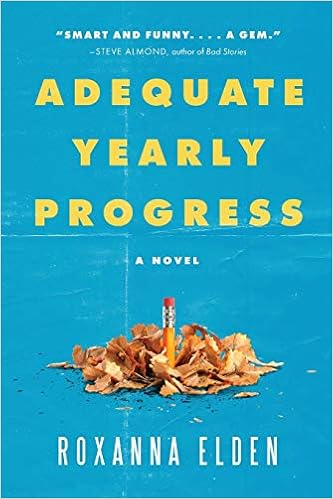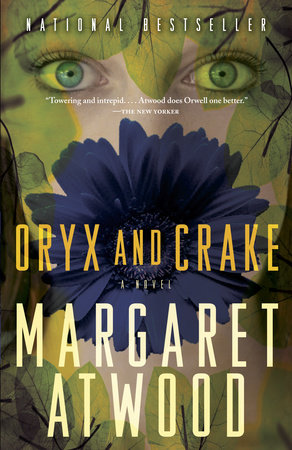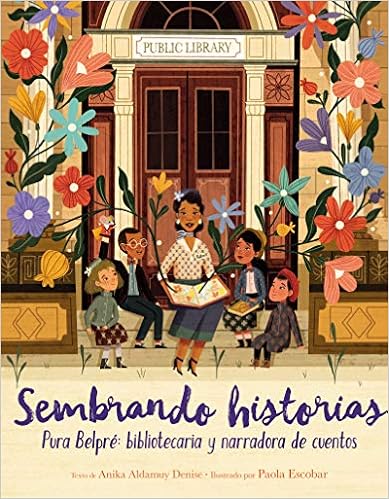Tuesday, May 21, 2019
Who Killed the Fonz? - by James Boice
Mystery Month May continues with the gang from Happy Days. Unwilling to believe that the motorcycle crash that killed their super cool friend was an accident Richie, Potsie, and Ralph take on the Milwaukee political machine.
Set in the 1980s the paunchy, middle-aged friends start their own investigation into the accident and discover something much more sinister than they could have imagined.
There is a lot of re-hashing of individual plot lines from the old television show including the infamous jumping of the shark. For this blogger, however, the most important reminder was that Richie and Lori Beth met at their college library. So important was this detail, in fact, that it is mentioned twice in this rather short novel.
Fans of the show will likely enjoy this nostalgia trip. And you can be sure that, dead or alive, Fonzie will always save the day.
Monday, May 20, 2019
Everything I Never Told You - by Celeste Ng
Lydia Lee has a lot of pressure on her. Her mother (Marilyn) wants her to be a doctor (a dream she did not fulfill herself) and her Chinese-American father (James) wants her to be popular and to fit in (a dream he never realized). When their daughter's body is discovered at the bottom of Middlewood Lake the Lees must come to grips with her death. The omniscient narrator gives the reader insight into each of the other members of the family and their histories, as well as Jack, a classmate, and a person of interest in Lydia's disappearance. Readers eventually know for sure what happened. The Lees, however, are never convinced.
The story takes place during the late spring and summer of 1977. A time when Nath Lee, Lydia's older brother, is looking forward to starting Harvard. Harvard played an important role in the Lee family history; it is where Marilyn and James met in 1957 (in the history department which "had the peaceful quiet of a library"); and it was where James, notoriously, did not get hired once he earned his Ph.D.
Just before his sister's death Nath visited the Harvard campus where he
wandered awestruck, trying to take it all in: the fluted pillars of the enormous library, the red brick of the buildings against the bright green of the lawns, the sweet chalk smell that lingered in each lecture hall.It is clear that James also remains in awe of Harvard. And that perhaps his son's acceptance is a vindication for him.
James' upbringing in Iowa, where he was the only person of Asian descent at the elite boarding school where his parents worked as a groundskeeper and kitchen worker made him long to be like everyone else. He surprised everyone at Lloyd Academy by passing the admission test, which allowed him to attend the school for free as the child of employees. He had no trouble answering the exam questions having learned so much from reading "all the books his father had bought, a nickel a bag, at library book sales."
Nath also took advantage of the library growing up. As a child he managed to get the librarian to allow him to borrow books from the adult section, and remained engrossed in learning about outer space, physics, and flight mechanics throughout his high school years.
And, finally, on a non-library note I feel compelled, as the wife of a geographer, to snark about this bit of undeserved Harvard fascination:
James' teaching assistant Louisa is less than impressed with some of the responses she found on student exams and tells him
I hope the summer students will be better... A few people insisted that that the Cape-to-Cairo Railroad was in Europe. For college students, they have surprising trouble with geography.To which James responds:
Well, this isn't Harvard, that's for sure.Except that it appears that where geography is concerned Middlewood College may indeed be able to hold a candle to our friends in Cambridge. Harvard, in fact, infamously got rid of its Geography department in 1948 when University President, and homophobe, James Conant declared geography "not an academic department".
This YouTube video give us some insight about the current state of geographic understanding at Harvard.
Death Overdue-by Allison Brook
It's Mystery Month May and so, although I don't really like mystery novels, I read one. Of course I picked one about a librarian.
This is a rather light mystery about a young librarian, Carrie, who with the help of a friendly ghost, Evelyn Havens (former library employee, and aunt to Carrie's nemisis "prune-faced" Dorothy), solves the 15-year old murder of Laura (another library employee) in the fictional town of Clover Ridge, Connecticut.
Some interesting tidbits worthy of comment here (besides the fact that Evelyn "shushes" Carrie when she first meets her).
Dorothy is quite an unpleasant sort and furthermore had been envious of Laura back in the day "because all the patrons liked her and wanted her to help them". Evelyn had tried to explain to Dorothy that she should smile more and speak in a "pleasant manner" so that patrons would like her too. Dorothy's response had been that
her job was to answer questions and look up information. She wasn't paid to be an entertainer as wellAnd here I must give some acknowledgement to Dorothy's point of view. The expectation that we smile, and that part of our work must involve getting people to like us is a burden demanded heavily upon women. Somehow I doubt that if Dorothy had been a man anyone would have made the same suggestion. In fact, I expect that the opposite would have been true. Her serious manner would have instead have been seen as a sign that she knew what she was talking about.
Meanwhile, Carrie endures a bit of "mansplaining" from police Lieutenant Mathers who suggests that she can find out more about Laura's murder from the newspaper articles online, which she can read at the library.
I think the best line though (and what obviously makes this fiction is) when Carrie is offered the job of head of programs and events and is informed that while the work is demanding "the salary's quite good" LOL.
Thursday, May 9, 2019
To All the Boys I've Loved Before - by Jenny Han
What could have been a trite YA comedy of errors about a teenager who wants to die of embarrassment was, in fact, a much more thoughtful story.
High School junior Lara Jean has a complicated love life, but at least she knows that the library is a good place to study with the boys she's dating/wants to date/pretends to date. She also considers the library a good place to volunteer (although as far as I can tell she never actually follows through on that plan). And the only library book she mentions is one she bought at the Friends book sale. At least it was cheap (75¢) if not free. The only appearance a librarian makes is, of course, to shush.
I picked up this book at the Little Free Library at Borderland State Park. A fun, quick read.
Tuesday, May 7, 2019
Adequate Yearly Progress-by Roxanna Elden
This satire about the fictitious Brae Hill Valley High School in Texas provides readers with a view of teachers' lives, both inside and outside the classroom. There are a lot of acronyms and, as one might expect from the title, there is much here about assessment, binders full of data, and standardized tests. It is somewhat prescient that this story about Texas' STARR assessment tests, and the real poet who couldn't answer the questions about her own poem has been making the rounds recently.
Brae Hill Valley has a media center "formerly known as the library". Its only use in this work is for a meeting of the Pre-Holiday Cross-Departmental Midyear-Assessment Data Chat ("PHCDMAC for short"). The only mention of the media specialist's (aka librarian's) work involves cutting out a laminated sign warning students to keep their distance from the creepy mechanical Santa Claus that was making its annual appearance from the school's supply room. Ah, well, at least BHVHS has a librarian. Many school districts find librarians to be easy targets when budgets are cut. This story from the Spokane (Washington) Spokesman-Review makes clear how little attention is actually paid to all the assessment data that educators are required to collect. Although there is a strong positive correlation between having school libraries with professional librarians and better student achievement librarian positions continue to be eliminated across the country.
Friday, May 3, 2019
Oryx and Crake - by Margaret Atwood
I first read this work when it was published in 2003. It is the first book of a trilogy, and I've been planning on reading the other two (The Year of the Flood and Maddaddam) but it had been so long since I read this one that I wanted to re-read it before delving in to the other two. My husband and I took the opportunity for a read aloud and will finish the trilogy together.
This is the story of Snowman (aka Jimmy), his best friend Crake, and their shared lover, Oryx. The novel alternates between a time in the near future where the bio-tech industry is running just about everything, including schools; and a bit more distant future, after just about everything has been destroyed. In the former time Jimmy goes to school, schools that even have libraries. Each mention of his school library is about technology. He uses computers and CD ROMs, but never mentions a hard-copy book. When Jimmy graduates he goes to a third-rate college - The Martha Graham Academy - which focuses on the humanities rather than STEM. Martha Graham's library is full of mildewing books, unlike the
better libraries, at institutions with more money, [which] had long ago burned their actual books and kept everything on CD-ROM, but Martha Graham was behind the times in that, as in everything.After graduation Jimmy
snared a job at the Martha Graham library, going through old books and earmarking them for destruction while deciding which should remain on earth in digital form...he lost his post halfway through because he couldn't bear to throw anything out.Ah, Jimmy, every librarian feels your pain. Just as gardens need weeding to keep them healthy, we know we need to "weed" our collections, too. But throwing out books just seems sacrilegious. What to do?
Thursday, May 2, 2019
The Library at the Edge of the World - by Felicity Hayes-McCoy
When I read a review of this work I was intrigued not only because it was about a library, but also because the author has a hyphenated name that starts with Hayes, which is also true of me. I downloaded this and my husband and I listened to it on the Kindle app during a long drive back to our New England home from Chicago.
We listened to it almost two months ago, making it rather hard to write about now. Also, since I was listening to it, rather than reading it I didn't mark anything. And a search on the word library, or librarian would be rather like a google search resulting in so many hits as to be overwhelming. In any case I will make my attempt to create a post, giving this work its due.
The story takes place in the fictitious town of Finfarran, Ireland. Our heroine/librarian is Hanna who has returned to Finfarran (her childhood home) following her divorce and taken a job as the director of the public library - a job that she isn't particularly excited about. Mostly she keeps things going, and tries not to rock the boat, until she discovers a dastardly plan to shut the library down. With the help of some elderly nuns she discovers the importance of keeping the library relevant and how to rally the town in support.
A lovely listen, read by Emma Rowe in her beautiful Irish lilt.
Wednesday, May 1, 2019
Sembrando historias: Pura Belpre: bibliotecaria y narradora de cuentos - por Anika Aldamuy Denise
This book is available in English as Planting Stories: The Life of Librarian and Storyteller Pura Belpré.
See also The Storyteller's Candle/La velita de los cuentos.
Subscribe to:
Posts (Atom)






